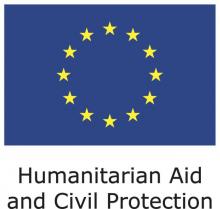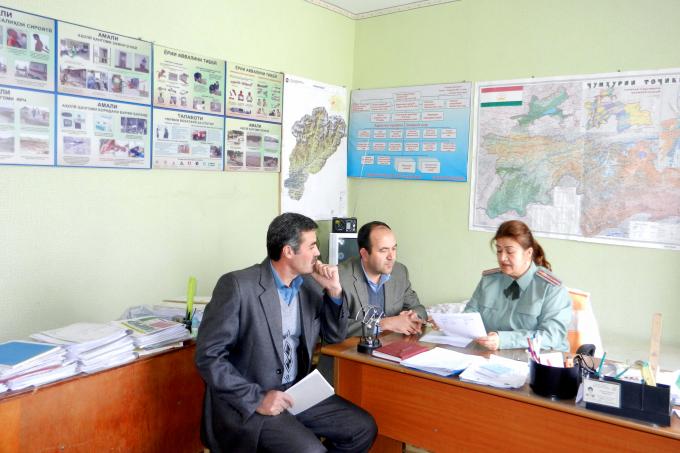Renovated agreement with Committee of Emergency Situation in Tajikistan in the framework of DIPECHO project

On September 26th, DRR team in Tajikistan finalized the signature of a 5 years Memorandum of Understanding with the Committee of Emergency Situation (CoES) of the Republic of Tajikistan.
As base for the the European Commission's Humanitarian Aid and Civil Protection department (ECHO) funded project, the agreement renovates the long-standing cooperation between Save the Children and the CoES and opens up to 5 more years of fruitful partnership.
The MoU regulates the mutual fulfillment of obligations during the implementation of activities in the field of disaster risk reduction, prevention, management and response in Tajikistan, engaging central, regional and district specialists of CoES in planning and implementing. Its validity goes beyond the duration of the on-going DIPECHO VIII project, looking at a longer commitment of the two parties.
“It took us almost three months to finalize the signature. It is a long process, that goes through the Ministry of Foreign Affairs and then thorugh a special review panel made of 10 people, within CoES”, explained Abdujabbor Hakimov, Save the Children DRR Project Manager in Tajikistan, “we gave feedback for each comment we received and we signed it. We are the first International Organization working under DIPECHO VIII that signed the MoU with Tajik counterpart” continued Abdujabbor, “I am proud of our strong partnership with local authorities, they respect us and I am looking forward to start the activities”.
Save the Children has been implementing DRR projects funded by the European Union since 2008 in Central Asia, working side by side with the CoES and the Ministry of Education, to prepare schools environment, teachers and school-children to face natural disasters, integrating disaster risk reduction into school curricula nationwide.
The current project started in June 2014 and works in Varzob and Vahdat districts of Tajikistan, covering two more districts in Kyrgyzstan. Building on previous projects funded by EU humanitarian aid, the innovation for Central Asia is the introduction of the Comprehensive School Safety framework, developed by Save the Children with other partners, that brings child-centered and evidence-based efforts to promote disaster risk reduction throughout the education sector and assures universal access to quality education.
The views expressed herein should not be taken, in any way, to reflect the official opinion of the European Union, and the European Commission is not responsible for any use that may be made of the information it containsThe views expressed herein should not be taken, in any way, to reflect the official opinion of the European Union, and the European Commission is not responsible for any use that may be made of the information it contains.
 Central Asia
Central Asia 